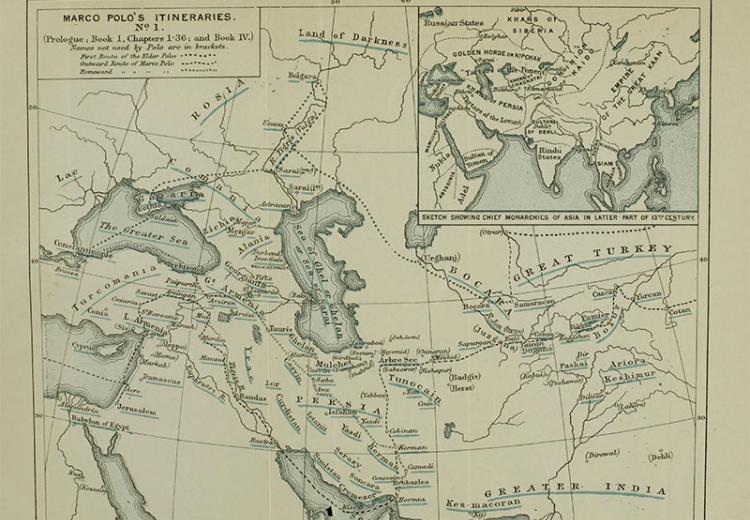Lesson 8: On the Road with Marco Polo: Homecoming

A map of Marco Polo's travels in the East.
In the 13th century, a young Venetian named Marco Polo set out with his father and uncle on a great adventure. Following a series of trade routes, they traveled across the vast continent of Asia and became the first Europeans to visit the Chinese capital (modern Beijing). Marco so impressed the reigning emperor of China, Kublai Khan, that he was appointed to the imperial court. For the next 17 years, Marco was sent on missions to many parts of Kublai's sprawling empire. The Polos finally returned to Venice via the sea route. Marco later wrote a book about his experiences, which inspired new generations of explorers to travel to the exotic lands of the East.
Guiding Questions
What happened to Marco Polo when he returned to Venice?
What circumstances led to the publication of "The Travels of Marco Polo?"
What effect did Marco Polo's book have on future explorers?
Why does Marco Polo remain significant to trade and cultural diffusion today?
Learning Objectives
Examine the circumstances of Marco Polo's return from China.
Evaluate the short and long-term effects of Marco Polo's travels on Europe.
Evaluate the short and long-term effects of Marco Polo's travels on global trade.
Evaluate the significance of Marco Polo's travels on the world today.
